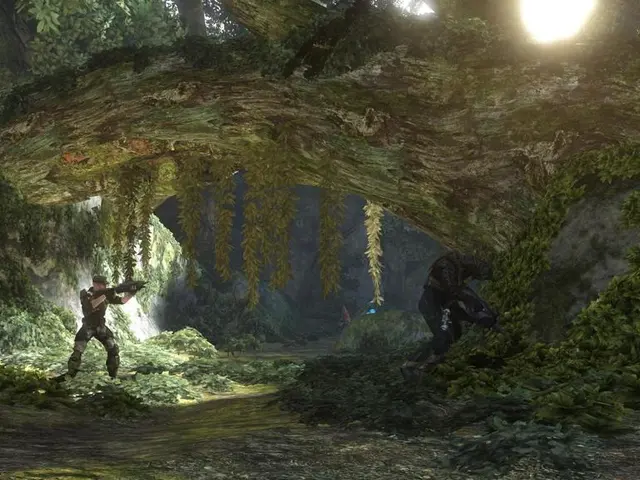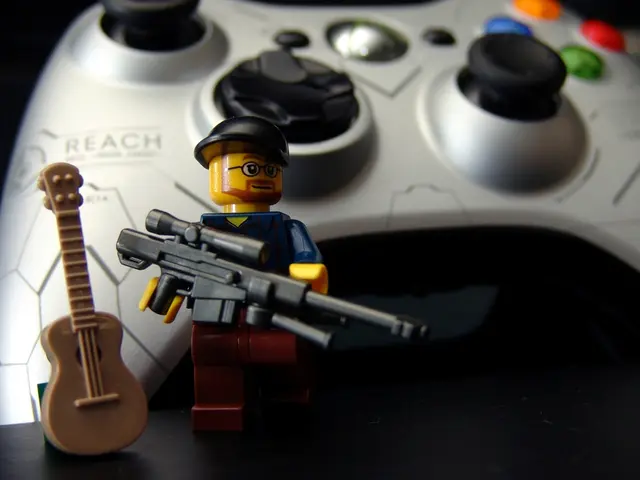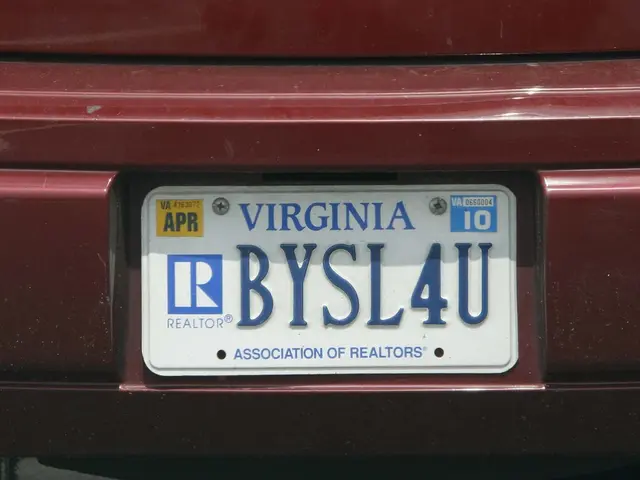Amateur Radio Participants in Intel Surveillance Efforts: Radio Communications Enlisted in Conflict
Laying the Groundwork for Wartime Intelligence: Ham Radio Operators and the Radio Security Service
Ever wondered what you need for a successful fishing trip? A boat, a good line, and bait, right? Well, if you're talking about World War II codebreaking, the answer is much simpler - messages. All the brains and technology in the world won't help you crack codes without the data to work with. And during WWII, a hidden network of amateur radio operators, known as the Radio Security Service (RSS), played a crucial role in getting those messages.
When the British realized that the Axis powers were flooding the airwaves with radio traffic, they knew they needed more ears to intercept it all. In 1938, Colonel Adrian Simpson sent a report suggesting a network of volunteers to handle the interception task. This was the birth of the RSS, which began operations out of some unused cells at a London prison.
The original volunteers were seasoned ham radio operators who brought their own equipment to the table. They were assigned the goal of intercepting transmissions from enemy agents hidden within the UK. As the war kicked off, ham operators had their transmitters seized, but they still held onto their receivers and Morse code knowledge. Most importantly, they were accustomed to deciphering Morse code even in less-than-optimal radio conditions.
Over time, this army of ham volunteers swelled to around 1,500 members, with the RSS also providing some radio gear to aid in the task. Each potential member underwent a thorough background check by MI5, and local police visited to ensure they were trustworthy. The RSS also enlisted servicemen and women who mainly focused on voice and military communications interception.
Early Days and Decoding Messages
In the early days, these Voluntary Interceptors (VIs) were asked to record any stations they couldn't identify and submit a log, including the message content, to the RSS. Thanks to a double agent, the RSS was able to decode the messages sent between agents in Europe and their Abwehr handlers in Germany, as well as Abwehr offices in foreign cities. Eventually, these messages contained Enigma-coded groups too.
With expansion and increased intercept capacity, the RSS moved from the prison to Arkley View, a large house near Barnet, north of London. They fine-tuned their focus on the Abwehr and their SS rivals, the Sicherheitsdienst. In 1941, MI6 took over management of the RSS, and the unit became SCU3 (Special Communications Unit 3).
As the war progressed, some operators were inducted into the Army - in uniform, but with expectations that didn't mirror typical military demands. Operators at Arkley View took on the task of classifying and correlating logs from VIs and other radio operators to identify relevant patterns or shared information.
Going 24/7 and Identifying Signals
Direction-finding operators played a vital role in tracking down the source of intercepted signals. These operators typically used a directional antenna array and would change the setup electrically until the signal disappeared, indicating the antenna was pointing away from the target transmitter. They then tuned their receiver to the frequency and matched the signal to that from the central station. This allowed them to pinpoint the transmitter's location.
Noteworthy Voluntary Interceptors
Most VIs were men, but there were a few exceptions. Helena Crawley is one example of a female VI who was encouraged to marry her fellow VI husband, Leslie, so they could be stationed together in Orkney to monitor radio traffic from Norway.
One particularly memorable VI was a bedridden man who managed to intercept and transcribe an essential 4,429-character-long message despite his physical limitations. He received the British Empire Medal and a personal letter of gratitude from Winston Churchill for his contributions.
Impact of the RSS
The work of the RSS significantly impacted British intelligence by providing valuable intelligence on enemy operations. It allowed them to identify potential spies before they could infiltrate the UK and to turn several known agents into double agents. By the end of the war, the RSS had decoded approximately a quarter of a million intercepts, making a substantial contribution to the Allied war effort.
Interestingly, the FCC had a similar plan in place across the Atlantic, employing a large number of amateur radio operators in its Radio Intelligence Division during WWII. Their work was pivotal in detecting, classifying, and locating illicit transmitters, using innovative radio equipment developed during the war.
During a time when the world was at war, a hidden network of amateur radio operators helped Britain gather vital intelligence by intercepting enemy radio transmissions. Without these dedicated volunteers, the codebreaking efforts at Bletchley Park, led by the likes of Alan Turing, might not have been as successful in deciphering encrypted Nazi communications and helping the Allies secure victory.
Ham radio operators, with their gadgets and technology, played a significant role in intercepting enemy radio transmissions during World War II. This network of dedicated volunteers, known as the Radio Security Service (RSS), provided valuable data crucial for deciphering enemy codes, utilizing their Morse code knowledge and receivers even with seized transmitters.
In the early days of the RSS, these Voluntary Interceptors (VIs) often transcribed encoded messages received from enemy agents in Europe and foreign cities, aiding British intelligence and the work at Bletchley Park. These gadgets, or radio equipment, played a part in turning several known agents into double agents and identifying potential spies before they infiltrated the UK, contributing to the Allied war effort.








